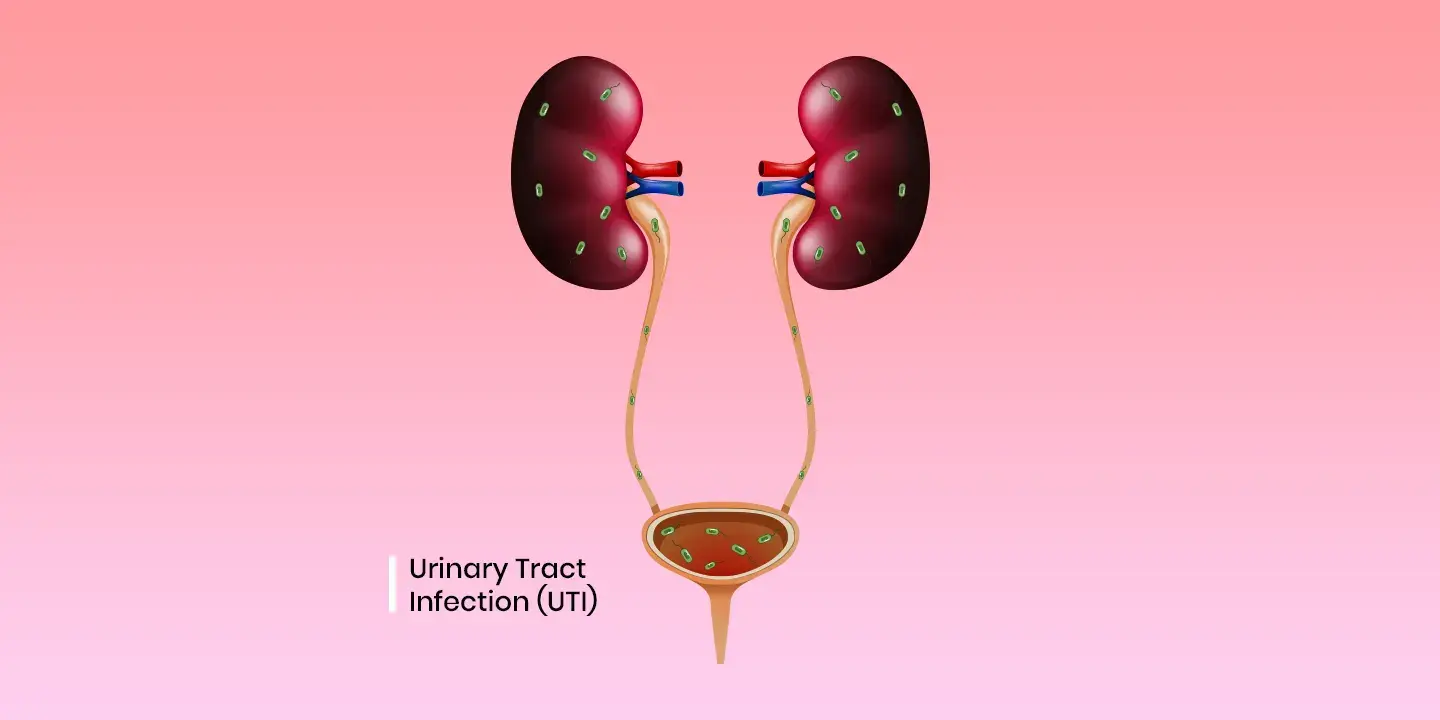Urinary Tract Infection (UTI): Symptoms, Causes, Treatment
Urinary tract infections (UTIs) are common infections that occur in any part of the urinary system, including the kidneys, bladder, ureters, and urethra. While both men and women can experience UTIs, they are more prevalent in women. Understanding the symptoms, causes, and treatment options is crucial for managing and preventing these infections.

Symptoms of UTIs
UTIs can present a variety of symptoms, which can range from mild to severe. Common symptoms include:
- Burning Sensation During Urination: One of the hallmark symptoms, this uncomfortable sensation occurs as the urine passes through the inflamed urethra.
- Frequent Urge to Urinate: Individuals may feel the need to urinate often, although the amount of urine passed can be small.
- Cloudy or Strong-Smelling Urine: Changes in urine appearance or odor can indicate an infection.
- Pelvic Pain: Particularly in women, pain may be felt around the area of the pubic bone.
- Fever and Chills: These symptoms can suggest the infection has reached the kidneys.
Causes and Risk Factors
UTIs primarily occur when bacteria, most commonly Escherichia coli (E. coli), enter the urinary tract through the urethra and begin to multiply in the bladder. Several factors can increase the risk of developing a UTI:
- Sexual Activity: Increased sexual activity can introduce bacteria into the urethra.
- Certain Health Conditions: Conditions like diabetes, kidney stones, or an enlarged prostate can increase risk.
- Use of Some Forms of Birth Control: Diaphragms and spermicidal agents can contribute to bacterial growth.
- Menopause: Changes in the urinary tract during menopause can increase susceptibility to infections.
Treatment Options
The primary treatment for UTIs involves antibiotics, which are prescribed based on the specific bacteria causing the infection and the patient’s health. Common antibiotics include trimethoprim/sulfamethoxazole, nitrofurantoin, and fosfomycin. It’s important to complete the full course of antibiotics to prevent recurrence and resistance.
In addition to antibiotics, some home remedies can assist in easing symptoms and preventing future infections:
- Hydration: Drinking plenty of water helps flush out bacteria.
- Cranberry Juice: Some studies suggest cranberry juice may help prevent UTIs by preventing bacteria from adhering to the urinary tract.
- Probiotics: Consumption of probiotics may help maintain a healthy balance of bacteria in the gut and urinary tract.
Prevention Tips
Preventing UTIs involves adopting habits that reduce the risk of bacteria entering the urinary tract:
- Practice Good Hygiene: Wipe from front to back to prevent bacteria from the anal region from reaching the urethra.
- Urinate After Intercourse: This can help flush out bacteria introduced during sexual activity.
- Avoid Irritating Products: Products like douches or powders in the genital area can irritate the urethra.
- Wear Loose-Fitting Clothing: This can help keep the area dry and prevent bacterial growth.
When to Seek Medical Attention
It’s crucial to see a healthcare provider if symptoms persist or worsen, as untreated UTIs can lead to more serious complications, such as kidney infections or sepsis. Specific signs, such as high fever, severe lower abdominal pain, or blood in the urine, warrant immediate medical evaluation.
Potential Complications
If left untreated, UTIs can progress and lead to complications like:
- Recurrent Infections: Experiencing three or more UTIs in a year is considered chronic.
- Permanent Kidney Damage: Especially prevalent in children, repeated kidney infections can lead to long-term damage.
- Urethral Narrowing: Long-term infections can cause scarring and narrowing of the urethra in men.
In summary, understanding the symptoms, causes, and treatments for UTIs can empower individuals to manage their health effectively. By recognizing early signs and maintaining preventive practices, one can reduce the risk of recurrent infections and complications.
FAQs About UTI Treatment
1. What types of antibiotics are commonly used to treat UTIs?
Common antibiotics prescribed for UTIs include trimethoprim/sulfamethoxazole, nitrofurantoin, fosfomycin, and ciprofloxacin. The choice of antibiotic depends on the type of bacteria causing the infection and the patient’s medical history.
2. How long does UTI treatment typically last?
The duration of antibiotic treatment for UTIs usually ranges from 3 to 7 days, depending on the severity of the infection and the specific antibiotic prescribed. It’s crucial to complete the entire course even if symptoms improve.
3. Can home remedies help in treating UTIs?
While antibiotics are necessary to treat UTIs, home remedies such as drinking plenty of water, consuming cranberry juice, and taking probiotics can help alleviate symptoms and prevent recurrence.
4. What can I do if my UTI symptoms persist after treatment?
If symptoms persist after completing a course of antibiotics, consult your healthcare provider. You may need a different antibiotic or additional tests to determine the cause of persistent symptoms.
5. What are the concerns about antibiotic resistance in UTI treatment?
Overuse or misuse of antibiotics can lead to antibiotic resistance, making infections harder to treat. It’s important to use antibiotics as prescribed and only when necessary to reduce this risk.
6. Are there any side effects of UTI antibiotics?
Common side effects of antibiotics can include nausea, diarrhea, and yeast infections. Severe side effects are rare but should be reported to a healthcare provider immediately.
7. What follow-up care is needed after UTI treatment?
Follow-up care may involve a repeat urine test to ensure the infection has cleared, especially if symptoms persist. Discuss any ongoing symptoms or concerns with your healthcare provider.
8. How can future UTIs be prevented?
Preventive measures include staying hydrated, practicing good hygiene, urinating before and after intercourse, avoiding irritating products, and wearing breathable clothing. Some individuals may benefit from prophylactic antibiotics under medical guidance.
These FAQs aim to provide a comprehensive understanding of UTI treatment, helping individuals manage their health effectively and prevent future infections.


